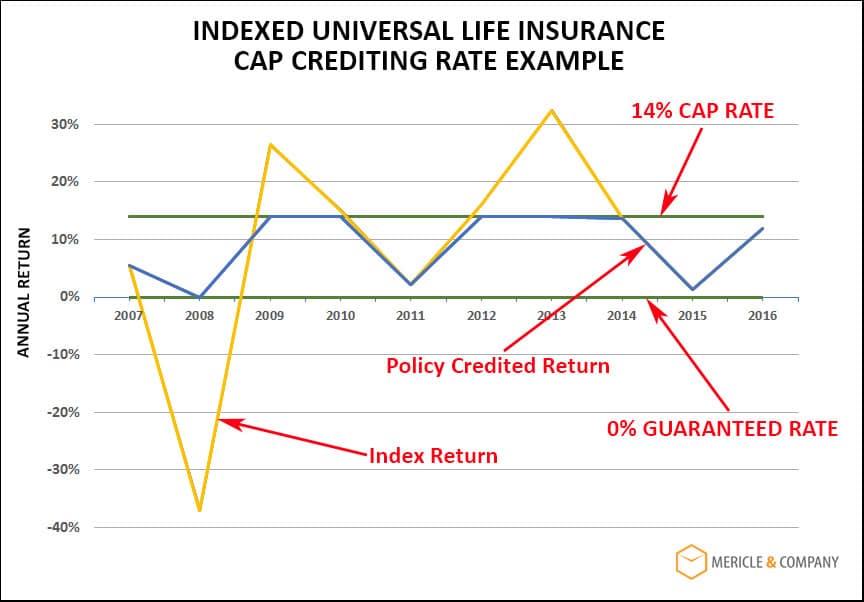All Categories
Featured
Table of Contents
Do they compare the IUL to something like the Lead Total Supply Market Fund Admiral Shares with no lots, an expense proportion (ER) of 5 basis factors, a turn over proportion of 4.3%, and an outstanding tax-efficient document of circulations? No, they contrast it to some awful proactively managed fund with an 8% load, a 2% EMERGENCY ROOM, an 80% turnover proportion, and an awful document of temporary funding gain circulations.
Common funds commonly make annual taxable circulations to fund proprietors, even when the worth of their fund has actually decreased in worth. Common funds not just call for revenue coverage (and the resulting annual taxes) when the mutual fund is going up in value, but can likewise impose income tax obligations in a year when the fund has gone down in worth.
That's not exactly how shared funds function. You can tax-manage the fund, collecting losses and gains in order to lessen taxable distributions to the financiers, however that isn't in some way going to transform the reported return of the fund. Just Bernie Madoff kinds can do that. IULs avoid myriad tax obligation traps. The ownership of mutual funds may require the shared fund proprietor to pay estimated taxes.

IULs are simple to position to make sure that, at the proprietor's fatality, the recipient is exempt to either income or inheritance tax. The exact same tax decrease strategies do not function almost too with mutual funds. There are many, usually expensive, tax traps connected with the timed buying and marketing of mutual fund shares, traps that do not apply to indexed life Insurance policy.
Opportunities aren't really high that you're going to undergo the AMT because of your mutual fund distributions if you aren't without them. The remainder of this one is half-truths at ideal. For example, while it holds true that there is no income tax as a result of your heirs when they inherit the profits of your IUL policy, it is additionally true that there is no revenue tax because of your successors when they inherit a mutual fund in a taxed account from you.
Why Universal Life Insurance Is Bad
There are much better methods to prevent estate tax concerns than acquiring financial investments with low returns. Mutual funds might trigger income tax of Social Security benefits.

The development within the IUL is tax-deferred and might be taken as free of tax revenue using finances. The policy proprietor (vs. the shared fund manager) is in control of his/her reportable income, therefore allowing them to lower or even get rid of the taxes of their Social Security advantages. This set is wonderful.
Below's one more very little concern. It's real if you get a shared fund for claim $10 per share right before the circulation day, and it distributes a $0.50 circulation, you are after that mosting likely to owe tax obligations (probably 7-10 cents per share) regardless of the truth that you haven't yet had any type of gains.
But in the end, it's really concerning the after-tax return, not just how much you pay in taxes. You are mosting likely to pay even more in tax obligations by utilizing a taxable account than if you buy life insurance policy. You're additionally most likely going to have even more money after paying those tax obligations. The record-keeping requirements for owning shared funds are significantly extra intricate.
With an IUL, one's documents are maintained by the insurance provider, duplicates of annual statements are mailed to the owner, and distributions (if any) are completed and reported at year end. This one is likewise type of silly. Naturally you ought to keep your tax documents in situation of an audit.
Accumulation Value Life Insurance
All you have to do is push the paper into your tax obligation folder when it turns up in the mail. Rarely a factor to buy life insurance. It's like this man has actually never ever invested in a taxed account or something. Common funds are typically component of a decedent's probated estate.
In addition, they undergo the delays and expenses of probate. The proceeds of the IUL plan, on the various other hand, is constantly a non-probate circulation that passes beyond probate straight to one's called recipients, and is consequently not subject to one's posthumous financial institutions, unwanted public disclosure, or comparable hold-ups and expenses.
We covered this set under # 7, however simply to recap, if you have a taxed common fund account, you have to place it in a revocable depend on (and even much easier, use the Transfer on Death classification) to avoid probate. Medicaid incompetency and lifetime earnings. An IUL can offer their proprietors with a stream of income for their whole life time, despite how much time they live.

This is valuable when organizing one's affairs, and transforming assets to revenue prior to a retirement home confinement. Common funds can not be transformed in a comparable manner, and are nearly always considered countable Medicaid assets. This is another foolish one promoting that inadequate people (you know, the ones that need Medicaid, a government program for the inadequate, to spend for their assisted living facility) need to utilize IUL rather than mutual funds.
Universal Life Insurance Questions
And life insurance policy looks horrible when contrasted rather versus a retired life account. Second, individuals who have cash to acquire IUL above and beyond their pension are going to have to be terrible at managing cash in order to ever get Medicaid to spend for their nursing home costs.
Chronic and incurable illness cyclist. All plans will allow a proprietor's easy access to cash from their policy, frequently waiving any type of abandonment penalties when such individuals experience a severe ailment, require at-home treatment, or become confined to a retirement home. Common funds do not provide a comparable waiver when contingent deferred sales fees still put on a common fund account whose owner requires to market some shares to money the costs of such a keep.
Transamerica Index Universal Life Insurance
You obtain to pay even more for that advantage (biker) with an insurance plan. Indexed universal life insurance coverage gives death advantages to the beneficiaries of the IUL owners, and neither the owner nor the recipient can ever before lose money due to a down market.
Now, ask yourself, do you in fact require or desire a fatality advantage? I absolutely do not require one after I reach economic self-reliance. Do I desire one? I mean if it were affordable enough. Obviously, it isn't low-cost. Generally, a buyer of life insurance coverage pays for truth cost of the life insurance policy benefit, plus the prices of the policy, plus the revenues of the insurance policy business.
Index Life Insurance Vs Roth Ira
I'm not entirely sure why Mr. Morais tossed in the entire "you can not shed money" once more below as it was covered fairly well in # 1. He just desired to duplicate the very best marketing factor for these things I mean. Again, you do not lose small dollars, but you can shed genuine dollars, as well as face serious opportunity expense due to reduced returns.

An indexed global life insurance policy policy owner might trade their plan for an entirely various plan without activating revenue tax obligations. A shared fund owner can not relocate funds from one common fund business to an additional without offering his shares at the former (therefore setting off a taxed event), and repurchasing new shares at the latter, commonly subject to sales costs at both.
While it holds true that you can trade one insurance coverage for another, the reason that people do this is that the very first one is such a terrible policy that even after getting a new one and undergoing the very early, adverse return years, you'll still appear ahead. If they were marketed the best policy the very first time, they should not have any desire to ever before exchange it and undergo the early, adverse return years again.
Latest Posts
Why Universal Life Insurance Is Bad
Universal Life Insurance Expires When
Index Universal Life Insurance Reddit